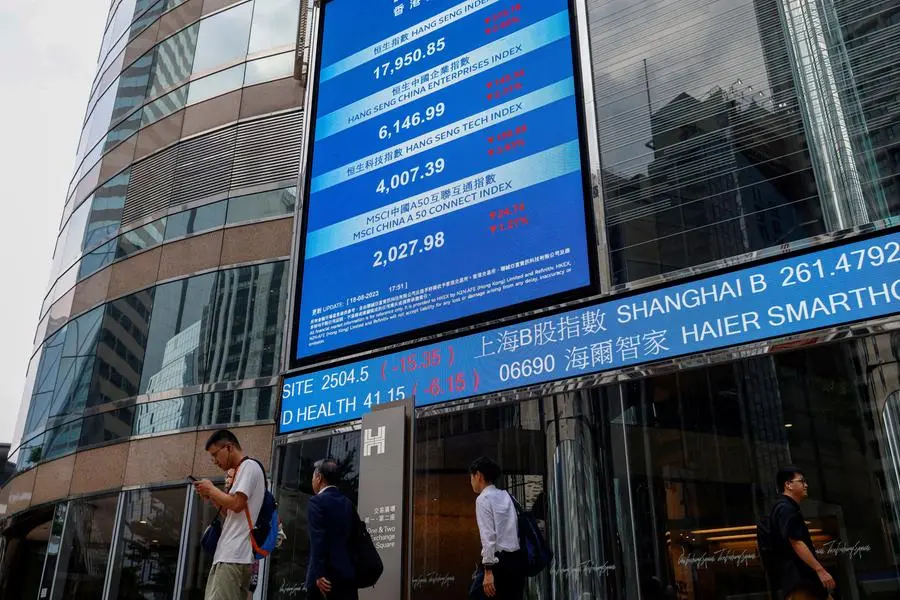PHOTO
Most Asian currencies were boosted by a weaker greenback overnight on Tuesday, as data from the world's largest economy pointed towards a growth slowdown, while Indian markets slumped after a sharp rally in the previous session.
Elections in emerging markets across the world have taken centre-stage this week with Mexico's Claudia Sheinbaum becoming the country's first woman president, and the African National Congress suffering its worst election in 30 years in South Africa.
In Mexico, the peso had closed at its lowest since last November, while stocks slumped over 6%, as markets feared that the election might bring constitutional change and diminish checks and balances.
Indian stocks meanwhile fell more than 3.5% as Prime Minister Narendra Modi's Bharatiya Janata Party-led alliance's lead was below expectations and the extent of the victory was not clear.
Equities in Mumbai scaled record highs the previous day after exit polls projected a big win for Modi.
The Indian rupee also fell about 0.3% to trade at 83.415 per dollar. "Elections in South Africa, India, and Mexico have generated sizeable reactions in financial markets. Those moves may not last – often the immediate reaction to political events proves overdone – but they highlight the potential for electoral surprises to generate volatility," analysts from Capital Economics said.
Elsewhere in Asia, most currencies were on the front foot. The Thai baht led the pack with a 0.6% gain, after the dollar took a breather overnight due to data showing signs of a softer U.S. economy, which boosted the possibility of an earlier Fed rate cut.
Markets now await the monthly U.S. payroll figures on Friday, where traders could get clarity on where interest rates are headed.
The Malaysian ringgit and the Indonesian rupiah rose about 0.2%, while the Philippine peso and the Taiwan dollar traded flat.
The Philippine central bank said it is ready to take action when the peso is under stress. The South Korean won rose about 0.2%.
The Asian trade bellwether's inflation in May slowed to a 10-month low, which could make the central bank lower its policy in the fourth quarter.
Asian shares, however, were mixed on Tuesday after poor data from the U.S, with stocks from Singapore, Taiwan, and Philippines losing between 0.1% and 1.8%.
Other equities such as Malaysia and Indonesia rose 0.7% and 1.2% each.
HIGHLIGHTS:
** Indonesia's 10-year benchmark yield falls to 6.871%
** Thailand needs to fix credit access problems, central bank says
** Central banks turn cautious on China's yuan, keen on dollars and gold Asia stock indexes and currencies at 0405
(Reporting by Archishma Iyer in Bengaluru; Editing by Stephen Coates)




















